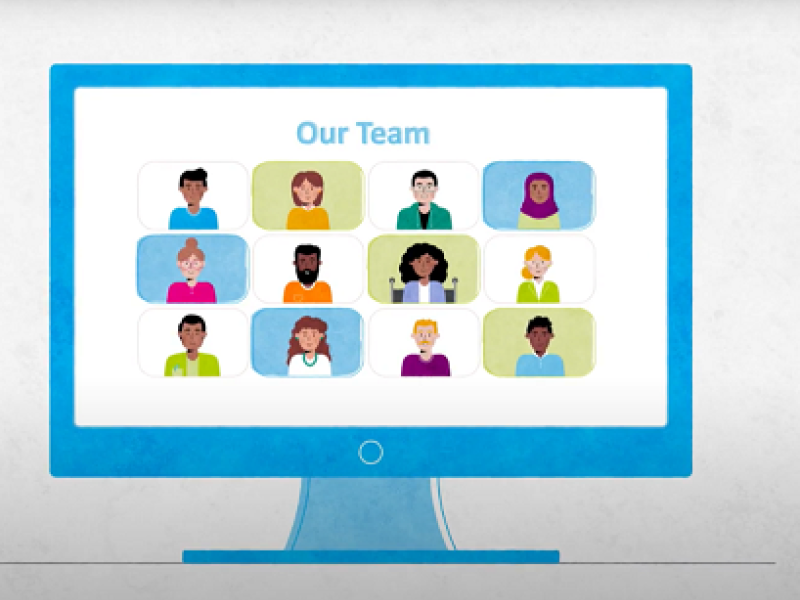Mind’s Lived Experience Advisory Team (LEAT) is a group that works to privilege the voices of lived experience throughout our service design and delivery.
The LEAT is a national group made up of 12 people from diverse backgrounds, including people from Aboriginal and Torres Strait Islander, LGBTIQ+, and culturally and linguistically diverse communities, as well as people with a disability.
The group each have a lived experience of receiving services themselves or caring for someone who has, which gives them a valuable ability to identify areas for quality improvements and sector reforms.
Finding ways to include the voices of lived experience and hear their diverse perspectives helps emphasise insights that might otherwise be overlooked, according to Sharon McDonald, Mind’s Acting Participation and Co-design Manager.
“It’s about solving problems with the people most affected by them, sharing power and decision-making,” Sharon said.
The LEAT lends their interest in mental health recovery, as well as their skills, knowledge, and relationships to inform a range of projects that Mind undertakes, including tendering for new business.
Their knowledge ensures that Mind services properly meet people’s needs and tailors approaches to the individual.
“For me, inviting LEAT to participate in the planning of tender bids was significant,” LEAT member Graham said.
“It ensured that both consumers and carers had the opportunity to contribute at the ground floor.”
Another LEAT member, Felicity, joined the group after spending many years caring for her son, who at 27 developed a psychotic illness. Now aged 44, he has been diagnosed as being on the autistic spectrum with Asperger’s syndrome and attention deficit hyperactivity disorder (ADHD).
Felicity, and the rest of the LEAT, uses her experience of navigating the mental health system to suggest improvements and reforms that can be made.
“We are called on to give our lived experience and feedback to help Mind improve its service delivery and policy. There is a great sense of being part of Mind which is incredibly valuable for both parties,” Felicity said.
“When you have been through the journey as a consumer or carer accessing supports, it can be incredibly exhausting. Providing feedback to improve the system feels like a burden being lifted. You get to use all that knowledge and experience constructively to make it better.”
The LEAT also co-created Mind’s 2022 Mental Health Week campaign Breaking out of the box, which focused on stigma, discrimination, and myth-busting. Several LEAT members shared their personal stories of recovery and tips for prioritising wellbeing.
Graham said that the LEAT’s contribution to this campaign had the power to resonate with other people with lived experiences.
“I believe it created the opportunity to engage with mental health consumers and carers who hadn’t previously reached out,” he said.
If you would like more information about Mind, please contact us via Mind Connect or phone: 1300 286 463.
If this article raises immediate concerns for you, please call Lifeline on 13 11 14. Aboriginal and Torres Strait Islanders can also call 13 YARN (13 92 76) a 24/7 national crisis support telephone service staffed by Aboriginal and Torres Strait Islander peoples.
